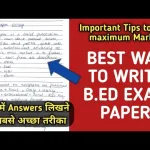Junior Kindergarten (Jr KG) is an important stage in a child’s early education. The Jr KG syllabus is carefully designed to introduce young learners to basic concepts in a fun and engaging way.
In language classes, children start recognizing letters, sounds, and simple words. This helps build the foundation for reading and writing skills. Mathematics lessons introduce numbers, shapes, and simple counting, making math enjoyable and accessible.
Environmental studies are included to help children understand the world around them. They learn about nature, animals, and simple science through interactive activities. Art and craft sessions encourage creativity, allowing children to express themselves through drawing, painting, and crafting.
Physical activities are also a key part of the syllabus. These activities promote motor skills, coordination, and the importance of staying active. Through play and movement, children develop their physical health and learn to work with others.
Social skills are another crucial aspect of the Jr KG syllabus. Children learn to share, communicate, and collaborate with their peers, which are essential skills for their overall development. Teachers observe and guide children to help them grow both academically and socially.
Parents play a vital role in supporting their child’s learning journey. Engaging in educational activities at home, reading stories together, and encouraging curiosity can reinforce what children learn in Jr KG. This partnership between parents and educators ensures that children have a positive and enriching early education experience.
Overall, the Jr KG syllabus aims to create a strong foundation for lifelong learning, fostering a love for knowledge and personal growth in young children.
Questions and Answers:
1. What is the Jr KG syllabus? The Jr KG syllabus outlines the subjects and activities designed for children in their junior kindergarten year, focusing on foundational learning skills.
2. What subjects are included in the Jr KG syllabus? Typically, the Jr KG syllabus includes language, mathematics, environmental studies, art and craft, and physical activities.
3. How is learning assessed in Jr KG? Assessment in Jr KG is usually through observations, participation in activities, and simple evaluations to track each child’s progress.
4. How can parents support their child’s Jr KG learning? Parents can support by engaging in educational activities at home, reading together, and encouraging curiosity and exploration.
5. What are the goals of the Jr KG syllabus? The main goals are to develop social skills, basic literacy and numeracy, creativity, and a love for learning in young children.
Latest Posts
- Step-by-step guide to download and apply for jee mains admit card 202
- Comprehensive 2025 government holidays and recruitment details for job seekers
- JEE Mains Admit Card 2025: Your Step-by-Step Guide to Downloading the Hall Ticket
- Everything You Need to Know About 2025 Government Holidays Recruitment
- Comprehensive Guide to rrb d group recruitment 2025 – Eligibility, Vacancies, and Application
- Detailed guide to nps trust recruitment 2025 vacancies, eligibility and apply process
- Comprehensive guide to hpcl recruitment 2025 notification, vacancies, and application process
- ignou bed admission 2025 complete recruitment guide with eligibility and process
- Comprehensive Guide to Indian Army Agniveer Recruitment 2025 Notification and Jobs
- Everything You Must Know About CBSE Board Exams 2025 Changes & New Rules



